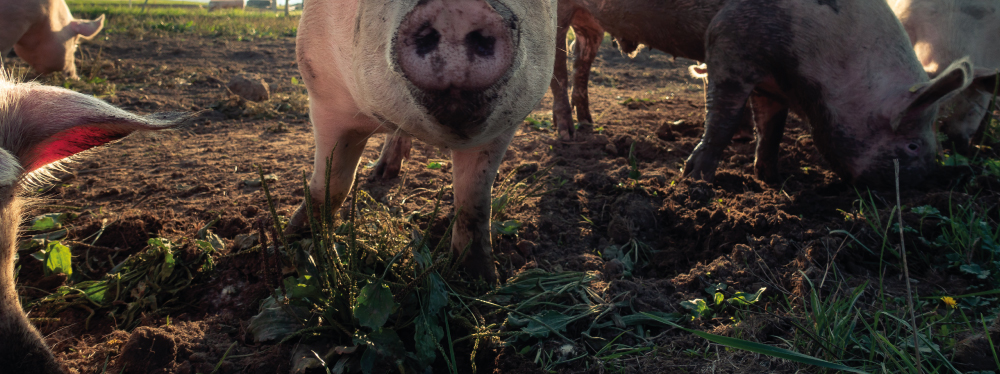SGISS
EN_Enquadramento
Within a RTD project lead by Coimbra Polytechnic School for Agriculture
Description
According to the Common Agricultural Pact, sustainable agricultural development should not be passively subsidised but should actively promote objectives and strategies for a sustainable agricultural production that preserves the environment and promotes food safety. Sustainable outdoor pig keeping using modern technology helps to maintain the rural population and attract the younger generation trained in these areas to launch more profitable enterprises. The SGISS project aimed to develop an electronic management system specially directed towards sustainable outdoor pig production. The system analyses registered data and automatically correlates important data such as the feed intake of an animal, weight gain, body temperature, the movements of each animal even if they are bred in large extensive areas and also registers current environmental data.
The system described also incorporates a pro-active animal management function where the breeder can control the feed intake of each animal, enabling correct feed intake (boar, pregnant sows, lactating sows and barren females) thereby optimising growth and body weight maintenance and minimising loss of feed (cost effectiveness), control the reproductive status of the animals and automatically isolate the female on heat for selective breeding (natural or insemination) to maintain a genetic superiority, and assess the health status of each animal through data obtained for on time health interventions (deworming, vaccination and treatment). This way, the system allows the producer to obtain real-time information and facilitates on time intervention. Minimising feed loss through the correct feeding also helps to reduce the production of excessive wastes rich in nitrogen and phosphorus that can have a negative impact on the environment.










